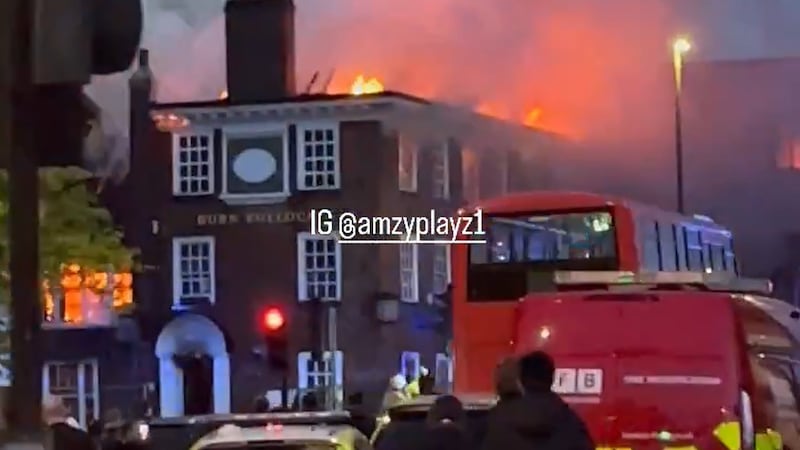GARDAI began secretly recording phone calls relating to bomb threats and coded messages at the height of the Troubles, it has emerged.
Embattled justice minister Alan Shatter yesterday told the dail recording systems were installed in Garda stations to tape 999 calls but also calls linked to the conflict in the 1980s.
However, even after the IRA cease-fire and progress on the peace process the technology was updated in the 1990s to allow the use of dicta-phones and again in 2008 when it was upgraded to a digital system. As Mr Shatter battled to save his job over the mounting crisis within an Garda Siochana, two Limerick men successfully stalled their trial for IRA membership. In the first court case affected by the Garda phone taping scandal, lawyers for the men secured an adjournment until today to discover whether their clients' phone calls had been recorded while in custody.
The irish government confirmed on Tuesday it was launching a judicial inquiry into the discovery that almost 2,500 recordings were catalogued at Garda HQ after phone calls were taped in Garda stations right up to last November.
The announcement came just hours after Martin Callinan's surprise announcement of his departure as Garda commissioner.
There were angry scenes in the dail yesterday as Taoiseach Enda Kenny defended the justice minister and rejected Fianna Fail claims he had "essentially sacked" Mr Callinan.
Mr Kenny had confirmed that he learned of the secret recording of phone calls in Garda Stations from the attorney General Maire Whelan on Sunday night.
He sent a senior government official to the former commissioner on Monday evening to make him aware of "the gravity of how i felt about this and its implications". Responding to Mr Kenny's comment, Fianna Fail leader Micheal Martin said: "You essentially sacked him. You sent a senior civil servant out to the commissioner the day before the Cabinet meeting," he said.
Earlier, the justice minister told the house he had met with the taoiseach and attorney general on Monday evening to discuss the issue.
He also said his officials had only given him a letter on Tuesday afternoon outlining details of the recordings sent to the department by Mr Callinan on March 10.
Mr Shatter insisted he had not been aware of a reference by Garda watchdog GSOC in a report in June to the recording of phone calls in Waterford Garda Station.
"This was not a report to me or my department but a press release by GSOC and there was no indication or suggestion of any nationwide system of recording in Garda Stations," he said. In a later dail statement on the Garda inspectorate report on the penalty points controversy, Mr Shatter withdrew a previous remark that whistleblowers Sergeant Maurice McCabe and ex-Garda John Wilson had failed to cooperate with internal probes into the alleged quashing of penalty points.
"i acknowledge that this statement was incorrect. It was never my intention to mislead the House and i believe it is appropriate that i apologise to both and withdraw the statements made," he said.
Mr Shatter, who has been widely criticised for the accusation, said he hoped his apology would "put this matter to rest". However, Opposition parties continued to demand the minister's resignation, criticising his handling of a raft of issues, including the whistleblowers, penalty points, allegations of bugging at the GSOC offices and the phone recordings.
"The minister is not the man to oversee the administration of justice in this country," Fianna Fail justice spokesman Niall Collins said.
Sinn Fein's Padraig Mac Lochlainn accused Mr Shatter of a "succession of bad decisions" that had resulted in "untold damage to public confidence."

